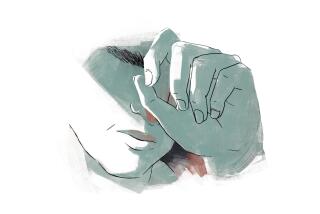Depression: Many Facts but Few Voices
- Share via
Suicide Awareness
Voices of Education
https://www.save.org
Background: Founded in 1989 by six Minneapolis-area couples who’d lost a loved one to suicide, SAVE is a mostly privately funded nonprofit devoted to educating the public about the warning signs of suicidal depression--and to speaking for survivors.
What Works: One of the best features here is the question-and-answer with Dr. Joseph Talley. It answers the basics--What is depression? What causes it? When is it serious?--succinctly, providing an extensive list of danger signs. Talley also gives a thorough review of possible treatments, detailing the differences between various antidepressants and how to tell whether they’re working. In the spirit of its founders, SAVE also takes into account suicide’s impact, providing guidance about what to tell children and how to manage your own grief. The site includes a good primer on what happens when someone is hospitalized for depression, plus a list of books on the topic--with reviews.
What Doesn’t: Despite all the good general information, SAVE’s pages lack a personal voice. There are no depression screening tests here, few interactive features, such as chat rooms or message boards, and no easy way to ask a personal question of a professional. For all its awareness that depression is an intimately emotional condition, SAVE doesn’t provide accessible testimonials--personal stories--that could be profoundly helpful for visitors. And while it addresses the risks and benefits of drug therapy, there’s little discussion of counseling or psychotherapy. SAVE’s doctors could have provided a more in-depth discussion of those options, how they are mixed and matched, and for whom.
National Mental Health Assn.’s Depression Screening
https://www.depressionscreening.org
Background: The NMHA is a nonprofit advocacy group that has been speaking up for the mentally ill for almost a century, pushing for legislation, working to remove the stigma of mental disability and helping define issues such as the insanity defense and the mental health of rural Americans and the homeless. Its depression screening site is meant as an instant resource for people concerned about depression.
What Works: The depression screen, a 10-item self-quiz, is anonymous and practical. While the NMHA states upfront that this test is not a diagnostic tool, answering questions such as “Over the past two weeks, how often have you been blaming yourself for things?” forces some self-evaluation that facts by themselves usually do not. The site’s pages on causes, treatment and symptoms function as an authoritative digest of the disease, and demystify some of the medical shorthand that often clutters mental health literature. And the NMHA doesn’t shy away from payment issues. Counseling from a pastor, you will learn, among other things, is generally covered by health plans if the counselor is licensed by the state.
What Doesn’t: The personal testimonial pages are disappointing, to be kind about it. The four chosen stories--from Phyllis, Dan, Stephanie and Stuart, last week--are told in blurbs, as if lifted from the back of a book cover. All four, who are middle-aged or elderly (no teens, no young adults), “recover” in 100 words or less, after revealing little more than a caricature of their emotions. Personal stories should be one of the most powerful features of any site offering support for the depressed. And for an organization that knows well the scope of mental illness, and the efforts to diagnose and treat it, there is precious little here on research.


